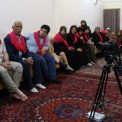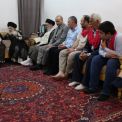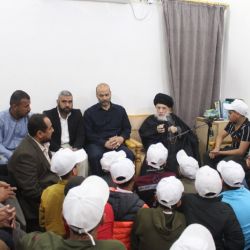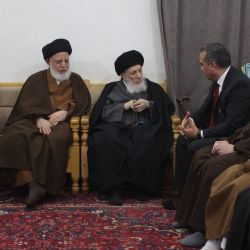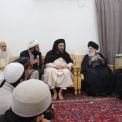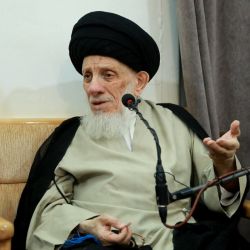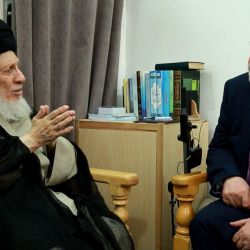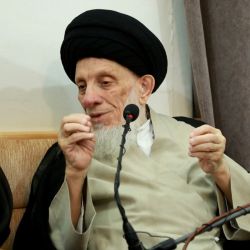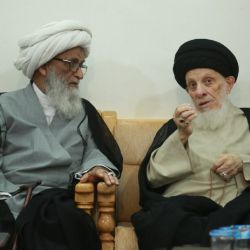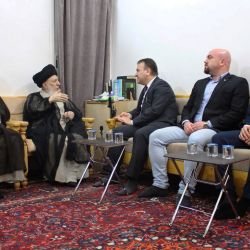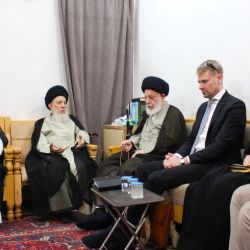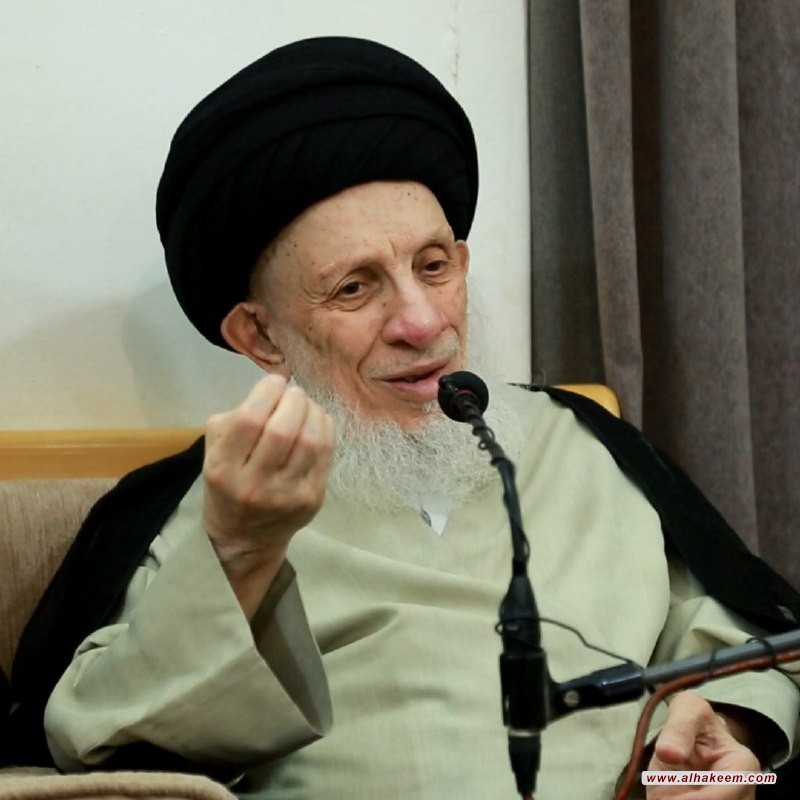
His Eminence, Grand Ayatollah Sayyid Mohammed Saeed al-Hakeem advised the Turkish Alawite community to strengthen the ties of love and brotherhood between themselves and other nations, and to continue the visitations of the holy shrines of the Infallible Imams (peace be upon them), to follow their virtuous path and to extend the bridges of acquaintance and friendship with the brothers in faith. His Eminence gave this advice during a meeting with visitors from the Turkish Alawite community.
His Eminence also recommended that they familiarize themselves with the laws of Islam and they learn their religious duties, through liaison and communication with scholars and preachers, and by abiding by the guidance of the Ahlulbait (peace be upon them), and by performing their duties in their prescribed times.
His Eminence expressed his pleasure in meeting with them and having this dialogue, and reminded them of their religious principles which they are obligated to preserve, as well as their attachment to the Ahlulbait (peace be upon them), doing what is necessary to abide by the religious decrees.
His Eminence prayed for their success and for the acceptance of their good deeds, and asked them to convey his greetings to their relatives in Turkey.

